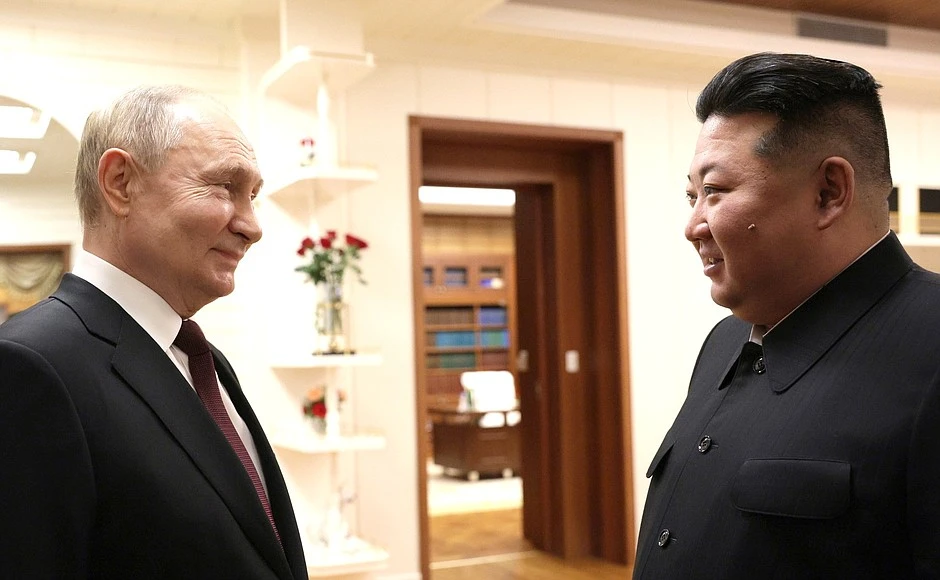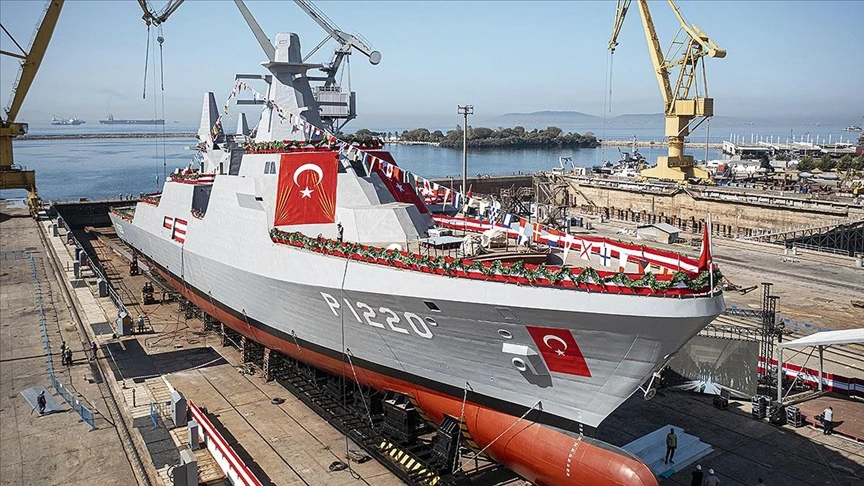Russia and North Korea: Mutual benefits and strategic alliance

China has historically dominated North Korea’s trade, being its primary aid donor and ally. However, with Russian President Vladimir Putin’s visit to Pyongyang, there’s growing evidence that North Korea’s geopolitical maneuvers are increasingly influenced by its ties with Russia, not just China.
Fueling North Korea: Russia’s alleged U.N. sanctions violation
Russia’s role in assisting North Korea extends beyond mere diplomatic ties. Last month, the U.S. accused Russia of violating U.N. sanctions by reportedly shipping refined petroleum to North Korea in quantities exceeding the sanctioned limit.
This trade loophole, facilitated by the proximity of their commercial ports, has allowed North Korea to mitigate economic damage caused by Covid-19 border closures, which severely curtailed its trade activities.
How does Russia support North Korea economically?
Russian support to North Korea isn’t solely economic. Kim Jong-un has reportedly secured food and energy supplies from Russia to alleviate shortages, a relationship expected to deepen during Putin’s visit this week. Furthermore, bilateral initiatives like the resumption of train travel between the countries in 2022 underscore their strengthening ties, symbolized by the transport of thoroughbred horses on the inaugural journey.
What does North Korea provide in return to Russia?
In return for Russian assistance, North Korea offers military hardware, despite Kremlin denials of any formal arms deals. Reports indicate North Korean ballistic missiles may have been involved in conflicts such as Ukraine, raising international concerns.
Additionally, North Korea’s export of labor to Russia, a lucrative source of foreign currency for Pyongyang, continues despite U.N. mandates for repatriation by 2019’s end. Plans even exist for North Korean workers to assist in infrastructure projects in occupied regions of Ukraine, highlighting the controversial nature of their economic relationship.
Russia opposes tightening North Korea sanctions
Russia’s stance on U.N. sanctions against North Korea complicates international efforts. Alongside China, Russia has consistently opposed tightening sanctions and vetoed renewals of U.N. panels monitoring their implementation. This divergence from global consensus on North Korea’s nuclear and missile programs underscores a shift in diplomatic alliances within the U.N. Security Council.
What significant changes have occurred since Putin’s previous visit to Pyongyang?
Putin’s return to Pyongyang after 24 years marks a starkly different geopolitical landscape. Since his last visit, Russia’s international standing has evolved dramatically, with its invasion of Ukraine in 2022 leading to heightened global isolation. Concurrently, North Korea has intensified its missile testing, aligning both nations against perceived Western threats.
Putin and Kim’s meeting is anticipated to solidify economic and security agreements, positioning them as strategic allies against Western influence. Putin has emphasized their united front against Western ambitions, reflecting a shared narrative of defiance and independence.



